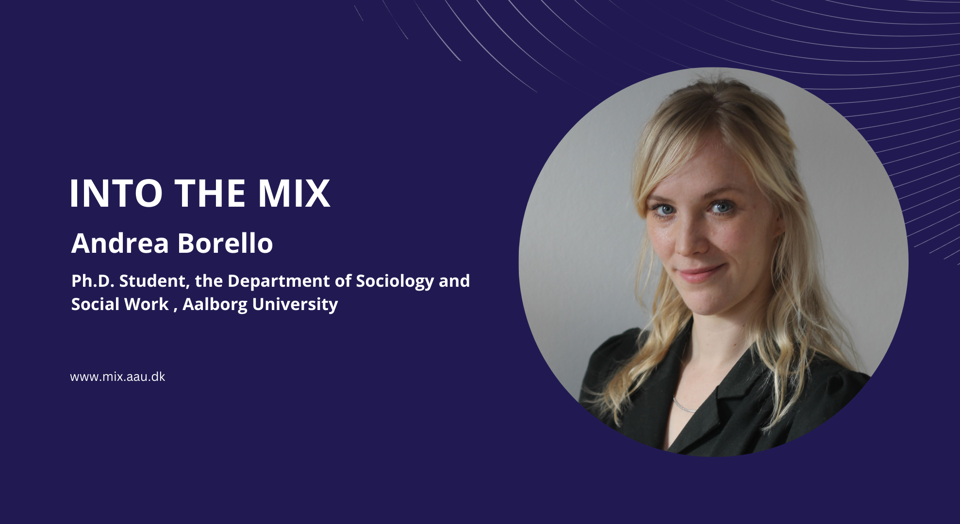For this article, I have interviewed people working at Wolt and Nemlig.com – two grocery delivery and takeaway companies - about their working conditions. What I'm really occupied with right now are the ways that we tend to think of precarious work as people working on a strawberry field or a construction site far away from us. But actually, a lot of labour migrants find employment within these digital platform companies such as Wolt, Nemlig.com, and Gorillas. We thus all encounter platform migrant workers in our everyday life as they are very present in the cities. And oftentimes their work is not regulated or they don't have collective agreements, so it is actually precarious work in many ways. I think that's the main message - to get people to think about platform work as migrant work. And as potentially very precarious work. So, to raise this awareness and make people reflect and take a stance as consumers and when using these digital platforms.
Q: It’s interesting to look at the technology and how it impacts the precarious work-life. Is technology in a labour market – a good or a bad thing?
That's a very good question, and I don't think there's a one-sided answer to that. I don't believe the technology as such is much of the problem but technology can be complex and ambiguous as it often comes with surveillance for instance in terms of apps that measure performances and delivery times. On the positive side, however, these platforms can also be a stepping stone into the labour market as they make you able to work very quickly, earn money, get an income - have a livelihood when you migrate, and don't have a network. So it's not only to say that they are bad or wrong, but it's more to raise awareness. As customers buying groceries or fast food, we also need to consider how we navigate this. I found that Nemlig.com is a case where the migrant workers are to a large extent desperate. There are a lot of Romanians working at this company and they often come from poverty and tend to be male workers, the main providers of families. Until recently, there have been subcontracting companies that hire them into Nemlig.com. So, even though Nemlig.com is covered by collective Danish agreements, the subcontracting companies are most likely not. This means that these people that are working and delivering our groceries, may be hired on terms that are not compliant with the Danish model or the Danish regulations.
Q: What should governments on the local or European level, for example, implement to regulate this?
First of all, it’s important to note that my aim with the project is not to make a recommendation to states. Rather, it is to provide a bottom-up study of how migrant workers navigate and what they do I am concerned with getting these people to speak, hearing their voices first of all. Within industrial relations research, scholars tend to have a ‘top-down’ approach where they talk mainly to the trade union, the state, or the government. But studies that contact to the actual migrants are scarce, so what do they do? How do they navigate? What does collectivism mean to them and what does it do to them in these precarious contexts? That in itself is something to shed light upon.
Having said that, understanding migrant workers’ situations can also potentially help stakeholders. Our research in the platform company highlights digital migrant network as a social infrastructure of coping. So, there are these very strong migrant networks online, where people follow and tap into these networks as they pursue new destinations. These networks are for instance on Facebook or WhatsApp. There are so many communities online where they find advice and where they navigate around in this precarious working structure. Further, these networks can spark labour-organised resistance under given circumstances. We also see that unions with organizers that have language skills, they can speak Romanian for instance, have a stronger hold in the migrant communities. There is also the Migrant Center in Nordvest, where they offer counselling that is free and anonymous. There are all these sorts of places where migrants also navigate to get help – and also where they offer help to other migrants. So, for stakeholders to be aware of this and able to tap into these various networks might be key for outreach purposes, such as for union organising or when disseminating knowledge about rights and decent work.
Q: You work to amplify the voices of migrants. Do you have a story that really got stuck with you?
There was one person that I spoke to who was especially vulnerable and he was homeless. He lived on the street and he had worked in many different countries. He had travelled around for 15 years and worked in different countries and different companies. And it was all these platform companies. They were small companies and all within digital platforms. He was talking about it as a lifestyle, which I found very interesting. So it's also to say that there are people that are so fundamentally precarious and living in poverty in the country of origin, that they live this life. It's not only that they go home again and pursue their dreams. They will move on continuously and express their agency while doing so.
Q: To wrap it up, what do you like to do outside your research work?
I love going to the beach house!
